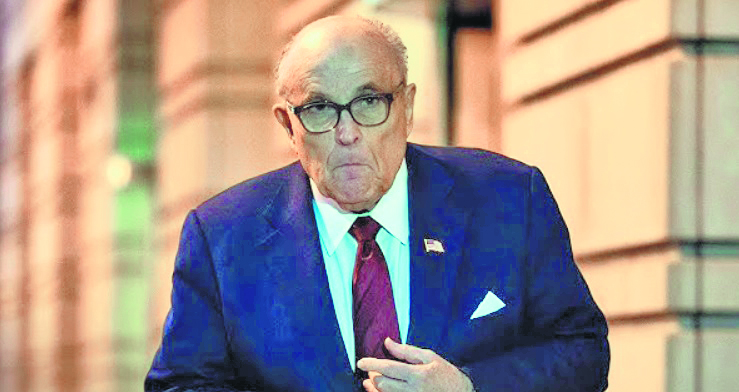Former New York City Mayor Rudy Giuliani on Thursday filed for bankruptcy in New York’s southern district court, the news channel reported.
This comes just days after a jury ordered him to pay nearly USD 150 million to two former Georgia election workers for defamation.
As per the filing, Giuliani listed debts between USD 100 million and USD 500 million and assets worth up to USD 10 million.
As per the news channel, the bankruptcy declaration is another setback for the former New York City mayor, federal prosecutor and one-time front-runner for the Republican presidential nomination, all stemming from his time as Donald Trump’s attorney after the 2020 presidential election.
Giuliani lists nearly USD 1 million in unpaid taxes among his liabilities, as well as hundreds of thousands of dollars owed to lawyers and accountants.
He also lists pending lawsuits, including three defamation cases over his statements after the 2020 election that haven’t yet gone to trial and could add to his debt if he’s ordered to pay damages in those cases.
Giuliani’s political adviser Ted Goodman said: “The filing should be a surprise to no one. No person could have reasonably believed that Mayor Rudy Giuliani would be able to pay such a high punitive amount. Chapter 11 will afford Mayor Giuliani the opportunity and time to pursue an appeal, while providing transparency for his finances under the supervision of the bankruptcy court, to ensure all creditors are treated equally and fairly throughout the process.”

















